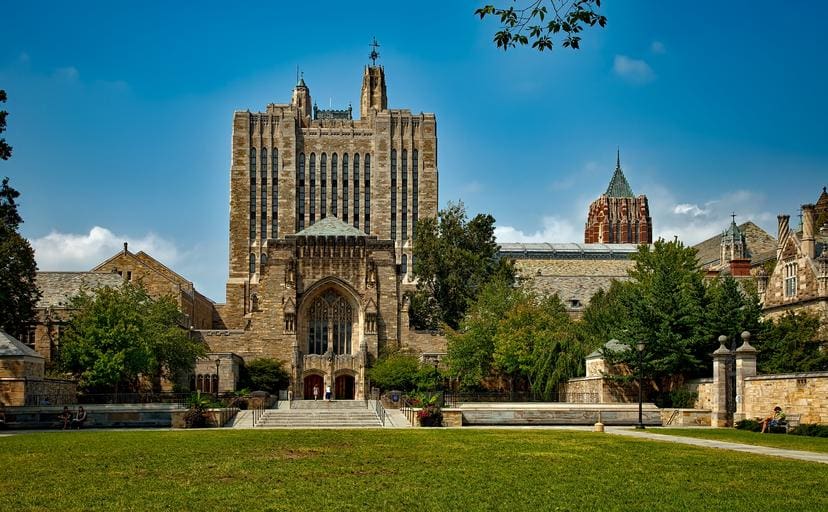The State of Qatar has been shaping academic discourse in America’s top universities for decades, says a recent report from the Institute for the Study of Global Antisemitism and Policy (ISGAP).
The report, titled “Networks of Hate: Qatari Paymasters, Soft Power and the Manipulation of Democracy,” details not only the influence wielded by Qatar over elite US schools, but even its ownership of what they produce.
Qatar, a rich country with a GNP of over $229 billion as of December 2022, is best known for owning the Al Jazeera network and serving as headquarters for the Muslim Brotherhood. Khaled Mashal and Ismail Haniyeh, who head the Muslim Brotherhood’s offshoot Hamas, live opulently in Qatar under the aegis of the country’s ruling Al Thani family.
Notable Muslim Jew haters like Yusuf al-Qaradawi, who was banned by other Muslim countries like Saudi Arabia, Bahrain, Egypt, and Tunisia, have found a welcoming safe haven in Qatar.
Qatar also hosts US forces and serves as the regional headquarters for the US Central Command (CENTCOM).
Qatar’s US Investments
In 2005 Qatar established the Qatar Investment Authority (QIA) as part of a foreign expansion and influence initiative. The QIA’s total assets are estimated to be between $500 billion and $1 trillion.
Qatar has earmarked over $55 billion of these assets for investment in the US. Billions have been invested in military and aviation, hospitality, food and beverage, energy, and infrastructure, including ownership in iconic American landmarks such as the Empire State Building, Plaza Hotel, and St. Regis Hotel.
One of Qatar’s investments in the US food and beverage industry is a $200 million stake in EatJust, a fake food company whose investors also include globalist billionaire Bill Gates.
Al Jazeera’s British entity, Al Jazeera International Limited, had previously been an American company named Current TV. In 2013 Al Jazeera purchased the company for $550 million from Current TV’s former vice president, Al Gore.
Qatar in American Universities
In 1995 the Emir of Qatar created the Qatar Foundation for Education, Science and Community Development (Qatar Foundation, “QF”). Because he set it up as a private nonprofit but still retains ownership, Qatar can invest in American universities without the restrictions that apply to governmental entities.
Through QF, America’s elite universities receive more money from Qatar than from any other country in the world. These colleges include Yale, Harvard, Texas A&M, Georgetown, Cornell, Carnegie Mellon, Northwestern University, and Virginia Commonwealth, among others.
“Through substantial investments, QF has developed into a major force which shapes academic programs and research priorities both domestically and internationally,” says the report. “The organization funds several universities and schools offering curricula, from primary to higher education.”
Millions of dollars go undeclared by the universities in mandatory disclosures.
Some of the academic programs shaped by Qatari money are Middle Eastern studies. Qatar’s influence is not limited to curriculum design, but even extends to faculty hiring.
In its billion dollar agreement with Texas A&M University to establish a local campus in Doha, Qatar not only ensures that its operatives have a major hand in human resources and budgetary decisions but also requires staff and faculty to adhere to Qatar’s laws.
“TAMU, TAMUQ, and their respective employees, students, faculty, families, contractors and agents, shall abide by the applicable laws and regulations of the State of Qatar, and shall respect the cultural, religious and social customs of the State of Qatar,” reads clause 11.10 of the agreement.
In addition, Qatar owns the intellectual property rights to all research projects in the agreement, which include sensitive nuclear research.
“This targeted approach suggests that strategic motivations—for instance, to advance Qatari state interests—influence the Qatari strategy, rather than pure philanthropy,” the report added.
Other universities such as Carnegie Mellon, Georgetown, Cornell, Virginia Commonwealth, and Northwestern have also established campuses in Qatar.
Sometimes Qatar funnels funds to American universities through other countries. Avangrid, US subsidiary of Spanish energy company Iberdrola, has indirectly served as a conduit. Santander, a major Spanish banking group of which Qatar is an owner, has also funded universities like Yale through conferences and initiatives.
“As a result, Qatar gains faculty advocacy for pro-Qatari perspectives on campus. Indeed, academics are ultimately incentivized to incorporate pro-Qatari advocacy into their syllabi. Thus, Qatar is seemingly able to normalize its ideological imprint on American classrooms. This would seem to constitute inappropriate foreign pedagogical interference, masked by superficial academic engagement.”
Qatar National Research Fund’s (QNRF) National Priorities Research Program (NPRP) is another initiative which funds research projects at elite universities like Yale. These projects, which span a host of disciplines like technology, cybersecurity, and energy, ultimately end in patents owned by Qatar.





